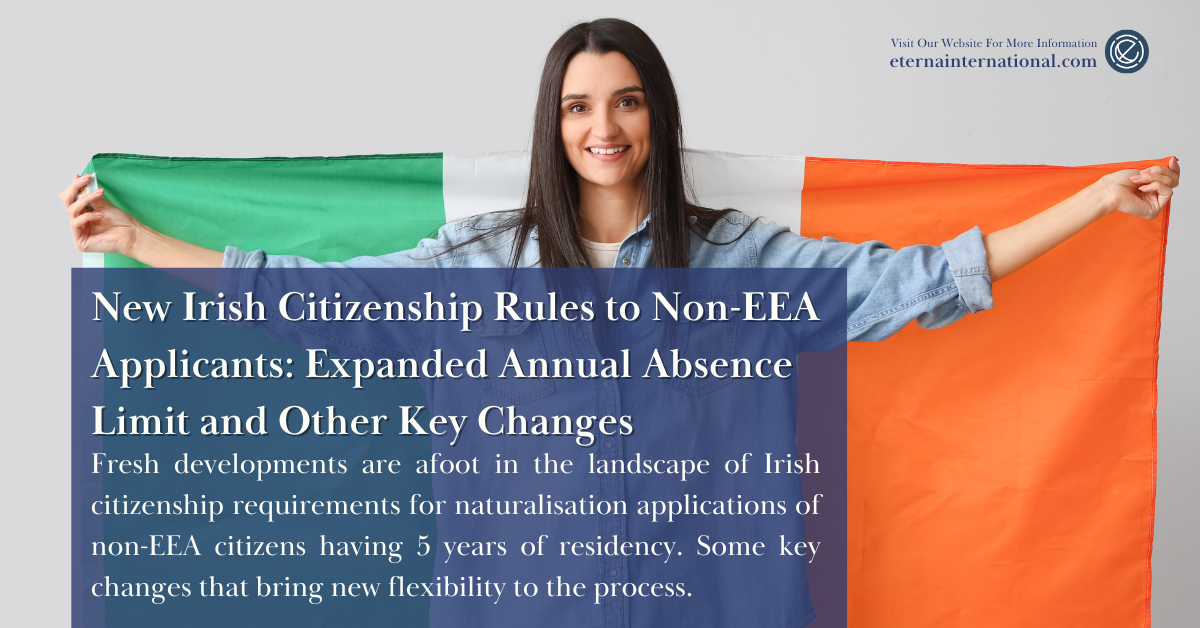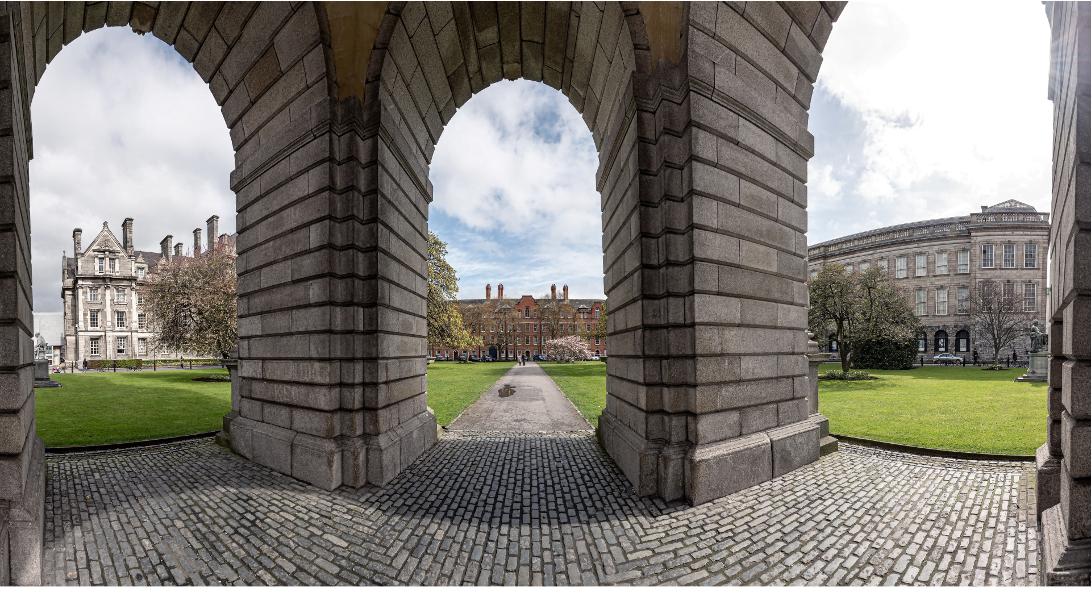Fresh developments are afoot in the landscape of Irish citizenship requirements for Naturalisation applications of non-EEA citizens having 5 years of residency. The Irish government has announced some key changes that bring new flexibility to the process. Here’s a breakdown:

Age and Residency: Core Criteria Unchanged
The foundational prerequisites remain consistent. Applicants must be a minimum of 18 years old and have resided in Ireland for the full year immediately preceding the application. However, the definition of “residing in Ireland” has seen nuanced modifications.
1-year Continuous Residency Before Application Submission
Applicants must meet specific residence criteria to be eligible for naturalization in Ireland. The two key requirements are:
- One year of continuous reckonable residence in Ireland immediately before applying. This means living in Ireland without long absences for 365 consecutive days before the naturalization application date.
- In the 8 years prior to the one year of continuous residence, the applicant must accrue a total of 4 years (1,460 days) of reckonable residence in Ireland. These 4 years do not need to be consecutive but must fall within the 8-year period.
Increased Allowable Absences
A significant update concerns permissible absences from Ireland. Earlier, only 42 days of absence were allowed annually for applicants to maintain their residency status. This limit has been increased to 70 days each year, with a potential additional 30 days for exceptional circumstances.
An exception applies for absences over 70 days due to exceptional circumstances such as health, family, work, or studies. In these cases, applicants can be absent for up to 100 days while maintaining reckonable residence. Any absence over 100 days would require not counting towards the calculation of reckonable residence that year.
The applicants can use the online residency calculator on the Immigration Service Delivery website to check if they meet the naturalization residency conditions.
Documentary Evidence: Unchanged but Crucial
The critical documents needed to apply for Irish citizenship by naturalization based on the guidance document:
1. Proof of Identity
- Certified copy of valid passport – 100 points
- Certified copy of national ID card – 100 points
- Certified copy of Irish residence permit – 50 points
Applicants must submit identity documents totaling 150 points.
2. Proof of Residence
- For each of 5 years in the last 8 years:
-
-
-
- One Type A proof (100 points): P60, social welfare statement, bank statements
- One Type B proof (50 points): utility bills, rent agreements, mortgage statement.
-
-
- Must total 150 points per year of residence.
- Include 1 year immediately before applying, plus 4 cumulative years in the prior 8 years.
3. Additional Documents
- Police certificate if lived abroad for over 100 days.
- Affidavit if the points total is deficient.
- Marriage certificate if applying based on marriage to an Irish citizen.
- Refugees provide certified copies of travel documents and affidavits.
The application instructions provide a detailed scoring system for identity and residence documents. Applicants must meticulously gather the required proofs to meet the 150-point threshold for each year of residence in Ireland.
Unaltered Additional Requirements
A valid Irish immigration permission card (IRP or GNIB card) remains necessary. Application fees stand at €175, and a 19-month processing timeframe is to be expected. Good character and the absence of an adverse immigration history are also imperative.
Future Residency in Ireland
Finally, the intent to continue residing in Ireland long-term is another requirement that remains in place.
These modifications introduce a more accommodating pathway to Irish citizenship while retaining rigorous standards. A closer look reveals thoughtful adjustments that could make the journey to Irish naturalization more achievable for many.
Additionally, Children born in the State who do not qualify for Irish citizenship at birth can now apply for citizenship by naturalization after three years of residency. Previously, children born in the State were required to wait for five years before they could apply.



